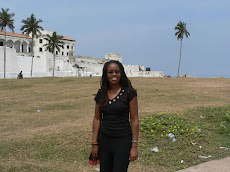

On 18 September 2009, I had the honor of welcoming a few dignitaries to the computer-based learning centre I currently manage. The day marked our official Centre inauguration. I also used the opportunity to recognize selected learners and teachers.
The event was very well-attended and planning kept me busy (and sometimes frustrated) over the past two months. We welcomed the Honourable Nangolo Mbumba, Minister of Education; the Honourable Dudu Mururoa, Governor of the Kunene Region; Mr. Charles Kabajani, Under Secretary of Formal Education; His Worship Councillor Matthias Tsaeb, Mayor of Khorixas; Mr. S.I. !Gobs, Khorixas Constituency Councillor; three local tribal chiefs; and numerous regional and school officials. We also had a big delegation from the Ministry of Education’s Directorate of Research, Science, & Technology, the division that sponsors these Centres throughout the country. Our Regional Education Director for Kunene, Mr. Kabajani Kamwi, served as the Master of Ceremonies; and the Namibian Broadcasting Corporation (NBC) was there covering the event. The story aired on the evening news of Sunday, 27 September. Also, local school choirs and a cultural group performed.
It was good to work with a few people who understand the value of hard work and respect the value of giving. It took unofficial overtime and donations to ensure we were ready for the day.
I work with some people who don’t do anything that they are not paid to do, and barely fully invest in the work they are paid to do. They leave the office at 5pm, when the official work day ends, regardless of what needs to be done and irrespective of urgent projects. And, I must admit my beyond-frustration when during the pressure of planning week, a colleague found time to sit-in on an AMWAY PRESENTATION (Yes, Amway!)! Such lackluster feelings about one’s job are something to which I am definitely accustomed in the U.S.A; however, I am a bit more sensitive here because I am a volunteer. Everything I do, I do for free. When my colleagues trip, then, I sometimes get annoyed. A volunteer did step up to paint a logo for the Centre, which took a few evenings. I, along with a dedicated colleague shared the cost of any additional supplies needed for the logo-painting project.
All in all, the event was a success. I am, however, disappointed by the fact that I missed the actual unveiling of the inaugural plaque. I was preparing learners for Centre tours/demonstrations to immediately follow the unveiling. As the primary event planner and Centre head, though, I expected to be running around for most of the day.
(I am pictured with Apas //Khoab Cultural Group and with the Minister of Education.)







.jpg)